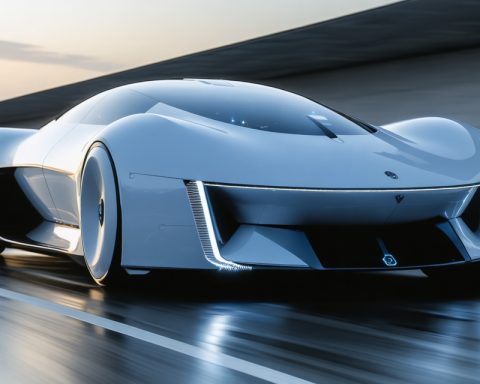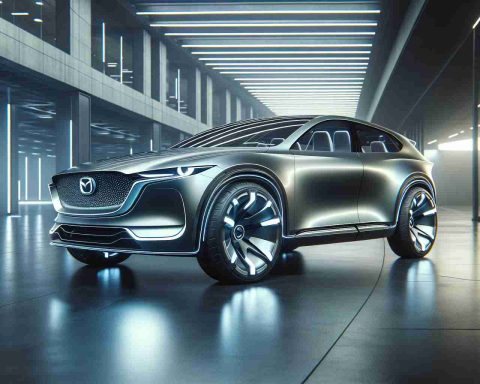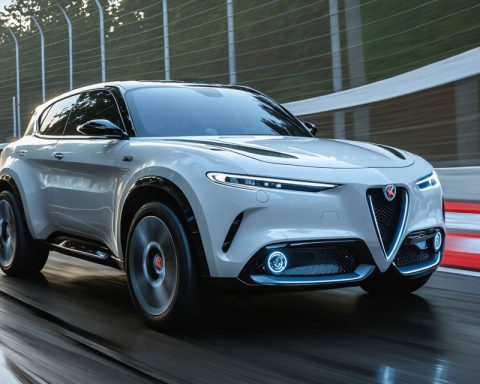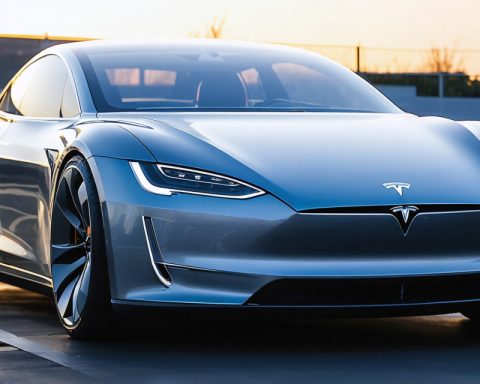- A tax change in April makes early electric vehicle purchases advantageous to avoid increased costs.
- Currently, fully electric vehicles are exempt from first-year VED, but a £10 fee starts on April 1st.
- Electric cars over £40,000 registered after March 31st will incur luxury car taxes, adding £2,125 over six years.
- Affordable electric options under £40,000, like Abarth and Volvo, mitigate financial impacts.
- Manufacturer’s list price, not dealer discounts, determines tax liability for electric vehicles.
- Benefit-in-kind (BIK) taxes on electric company cars increase from 2% to 3% in April, rising annually until 2028.
- Proactive purchasing decisions before April can save significant costs as the market shifts towards sustainability.
As the automotive landscape shifts towards sustainability, a crucial deadline is looming for those considering the leap to electric vehicles. With changes rolling in this April, buyers are on high alert, navigating the intricate labyrinth of taxation and incentives to make informed choices—and potentially save thousands.
Picture this: in a quest to minimize environmental impact, you’re on the cusp of purchasing an electric car. The clock is ticking, and the impending tax hike makes a compelling case for buying sooner rather than later. Currently, fully electric vehicles are exempt from the first-year vehicle excise duty (VED), but this will change come April 1st, when buyers will face a modest £10 fee. However, that’s just the beginning of the story.
The real tale unfolds in the pricing of these modern marvels. Any electric car registered after March 31st that costs above £40,000 will step into the realm of luxury car taxes, marking a seismic shift in financial outlook. The standard VED of £195 will now be accompanied by an additional £425 per year for those higher-value vehicles, cumulatively leaving an owner £2,125 poorer over six years. For most, that’s a compelling reason to act swiftly.
Yet, it’s not all grim tax talk. A myriad of electric wonders awaits at sub-£40,000 price points, offering a thrifty sanctuary for the discerning buyer. Names like Abarth and Volvo surface as budget-friendly saviors amidst the fiscal storm. Still, a word of caution: don’t fall into the siren call of attractive discounts. What truly matters for tax purposes is the manufacturer’s list price, not the special offer gleaming from the dealership window.
The waters get murkier for company car enthusiasts. Benefit-in-kind (BIK) taxes, the often underappreciated cost of electric luxury, are set to rise from 2% to 3% in April and will incrementally increase by 1% yearly until 2028. Although this may seem daunting, remember it’s a fraction compared to the formidable BIK rates hovering ominously over petrol and diesel counterparts.
The strong undercurrent of these impending changes heralds one key message: being proactive could safeguard your finances. Those teetering on the edge of purchasing an electric vehicle would do well to heed the call and investigate options before April’s fiscal recalibration takes hold. The journey towards sustainability and economic prudence is driven as much by timing as it is by technology. Take the wheel—before the landscape shifts yet again.
Tax Changes on Electric Vehicles: What You Need to Know Before April
Navigating the EV Financial Landscape
With the automotive industry rapidly transitioning towards eco-friendly solutions, the financial implications of purchasing an electric vehicle (EV) are becoming increasingly complex. Here’s a detailed dive into the upcoming changes and how you can best navigate this evolving landscape.
How-Tos & Life Hacks
1. How to Optimize Tax Savings:
– Purchase Timing: Buying an electric vehicle before April 1st could save you from an immediate £435 tax burden. This includes £10 for VED and £425 for the luxury car tax (if applicable).
– Pricing Insight: Aim for vehicles priced under £40,000 to avoid the luxury tax altogether. Remember to check the manufacturer’s list price.
2. Maximizing Benefits with Company Cars:
– The current BIK tax is at 2% but will rise incrementally to 3% in 2024. If timing your purchase is flexible, consider acquiring an EV sooner to lock in the lower rates for the initial period.
Real-World Use Cases
1. Affordable EV Options: Brands like Abarth and Volvo offer several models at competitive prices, providing a blend of style and financial prudence.
2. Long-Term Savings Benefits: Despite the upfront cost, electric vehicles generally entail lower running costs, thanks to reduced fuel expenses and maintenance requirements.
Industry Trends & Market Forecasts
The electric vehicle market is poised for substantial growth. According to a report by BloombergNEF, EV sales are expected to rise sharply, reaching 50% of all new car sales by 2030. The shift is driven by advances in battery technology, increased consumer awareness, and governmental policies favoring EV adoption.
Features, Specs, & Pricing
Key Features of Budget-Friendly EVs (Sub-£40,000):
– Abarth: Known for sporty performance and compact design.
– Volvo: Offers safety features and luxurious yet budget-friendly models.
Security & Sustainability
1. Enhanced Security: Modern EVs often come equipped with advanced security features, such as biometric access and remote locking systems, providing peace of mind.
2. Sustainability Impact: Switching to an electric vehicle is not only a personal economic decision but also a contribution to reducing carbon emissions globally.
Pros & Cons Overview
Pros:
– Lower lifetime operational costs
– Environmental benefits
– Access to government incentives
Cons:
– Higher initial purchase prices
– Inconsistent charging infrastructure (depending on location)
– Upcoming tax increments for some models
Actionable Recommendations
– Purchase Strategically: If considering an EV, finalize your purchase before April to maximize financial benefits.
– Evaluate Model Options: Opt for EVs under the £40,000 threshold to avoid additional luxury taxes.
– Consider Long-Term Benefits: Weigh the initial costs against long-term savings from fuel and maintenance reductions.
Taking action now could cushion your finances and solidify your contribution to a sustainable future. As the world moves towards greener transportation, being informed is your best tool in navigating the shifting scenario.
For more insights into the world of electric vehicles, visit Auto Express.























